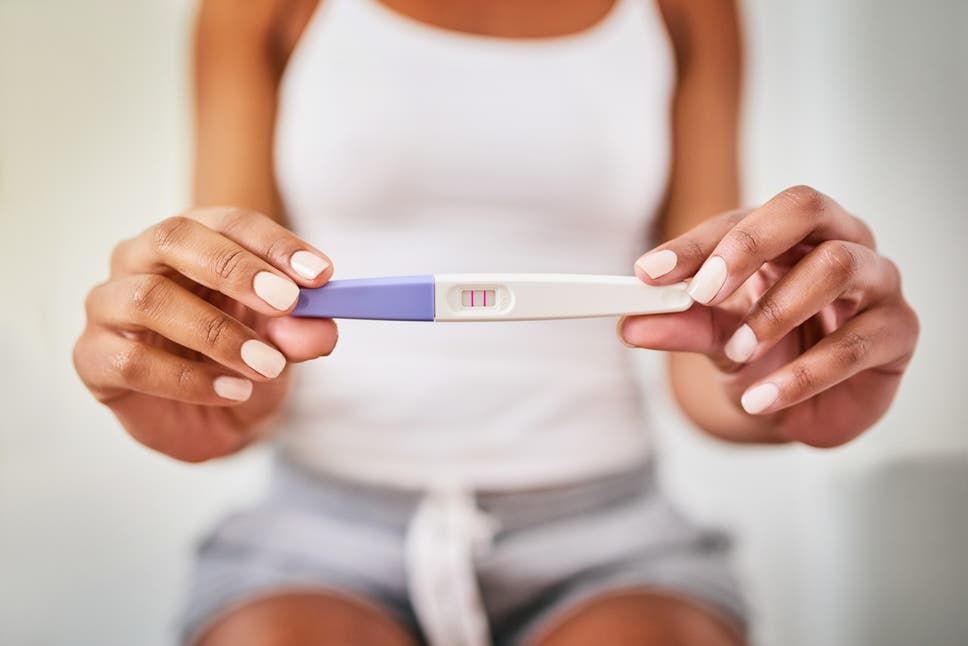I. Introduction

A. Introduction to the topic of appetite changes during pregnancy
Appetite changes during pregnancy are a common and natural occurrence that can greatly impact the eating habits and overall well-being of expectant mothers. It is important for pregnant women to understand these fluctuations in order to maintain a balanced diet and support the healthy growth and development of their baby.
B. The significance of understanding appetite fluctuations for expectant mothers
Understanding appetite changes during pregnancy is crucial for expectant mothers as it allows them to make informed decisions about their dietary choices. Pregnancy is a time of increased nutrient demand, and changes in appetite can indicate specific nutritional needs that should be addressed. Additionally, these changes can affect the physical and emotional well-being of pregnant women, so it is essential to have knowledge and strategies to manage appetite fluctuations effectively.
II. The Phases of Appetite Changes in Pregnancy
A. First Trimester: Nausea and Reduced Appetite
During the first trimester, many women experience morning sickness, which is characterized by nausea and vomiting. This can have a significant impact on appetite, leading to reduced food intake.
- Explanation of early pregnancy symptoms
Early pregnancy symptoms vary from woman to woman but often include fatigue, breast tenderness, and nausea. These symptoms are primarily attributed to hormonal changes in the body.
- Nausea and the impact on appetite
Nausea commonly referred to as morning sickness, is a common symptom during the first trimester of pregnancy. It can make the thought of food unappealing and lead to reduced appetite. This can cause concerns for expectant mothers who may worry about not getting enough nutrients for themselves and their baby.
B. Second Trimester: Increased Appetite and Food Cravings

The second trimester is often referred to as the “golden period” of pregnancy. During this time, many women experience an increase in appetite and develop specific food cravings.
- Hormonal changes and increased metabolism
Hormonal changes in the body during the second trimester, including a surge in estrogen and progesterone, can lead to an increase in appetite. These hormones also play a role in boosting metabolism, which may contribute to the increased hunger experienced by pregnant women.
- Heightened sense of smell and taste
Many pregnant women report a heightened sense of smell and taste during the second trimester. This can lead to stronger food cravings for certain flavors and textures, as well as aversions to certain foods.
- Frequent food cravings and increased hunger
Food cravings are a common phenomenon during pregnancy, and the second trimester is often characterized by increased frequency and intensity of these cravings. Pregnant women may have sudden, intense desires for specific foods and may feel increased hunger between meals.
C. Third Trimester: Appetite Surge and Adjustments
In the third trimester, as the baby continues to grow rapidly, appetite surges are common. However, changes in digestion and food preferences may also occur during this time.
- Physical growth and increased nutrient demand
During the third trimester, the baby undergoes rapid physical growth, which leads to an increased demand for nutrients. This often results in a significant surge in appetite as the body tries to meet these demands.
- Changes in digestion and food preferences
As the baby grows, it can put pressure on the digestive organs, leading to discomfort or changes in digestion for the mother. This may impact appetite and dietary choices. Additionally, hormonal changes can influence food preferences, leading to changes in cravings and aversions.
- Understanding satiety cues
While appetite surges are common in the third trimester, it is important for expectant mothers to listen to their body’s satiety cues and not overeat. Recognizing feelings of fullness and eating balanced meals can help maintain a healthy diet and prevent excessive weight gain.
III. Factors Influencing Appetite Changes in Pregnancy

Appetite changes during pregnancy are influenced by a combination of hormonal, nutritional, and psychological factors. This section explores the specific factors that contribute to these shifts in appetite.
A. Hormonal Changes
Hormones play a significant role in regulating appetite during pregnancy, primarily progesterone and estrogen.
- Role of progesterone and estrogen
Progesterone, a hormone essential for maintaining pregnancy, can affect appetite regulation. It stimulates the production of leptin, a hormone that signals fullness, and may contribute to the feeling of reduced appetite in the early stages of pregnancy. Estrogen, another hormone that increases during pregnancy, can also influence appetite regulation.
- Impact on appetite regulation
The hormonal changes in pregnancy can lead to fluctuations in appetite. Nausea and food aversions in the first trimester may be partially attributed to hormonal imbalances. As estrogen and progesterone levels stabilize, appetite tends to increase in the second trimester.
B. Nutritional Needs and Metabolism
Nutritional needs and metabolism undergo significant changes during pregnancy, contributing to alterations in appetite.
- Increased energy requirements
Pregnancy requires additional energy to support the growing fetus and the mother’s physiological needs. As a result, appetite may increase to provide the necessary energy for fetal development, maternal tissue growth, and overall metabolism.
- Nutrient demands for fetal development
The developing fetus relies on maternal nutrient intake for growth and development. As a result, the body signals an increased appetite to ensure an adequate supply of essential nutrients such as protein, carbohydrates, fats, vitamins, and minerals.
C. Psychological and Emotional Factors
Psychological and emotional factors can influence appetite changes during pregnancy.
- Food as a source of comfort and emotional support
Pregnancy can bring about various emotions and stress levels, leading individuals to seek comfort through food. Emotional eating may result in fluctuations in appetite and food choices.
- Stress and emotional changes
Stress and other emotional changes during pregnancy can impact appetite. High levels of stress hormones, such as cortisol, can suppress appetite in some individuals, while others may experience an increase in appetite as a coping mechanism.
IV. Managing Appetite Changes in Pregnancy

Managing appetite changes during pregnancy is essential to maintain a healthy and balanced diet. Here are strategies to help individuals navigate these changes effectively.
A. Balanced Nutrition and Quality of Food
Opting for a healthy, varied diet promotes optimal nutrition for both the mother and the developing fetus.
- Importance of a healthy, varied diet
Eating a balanced diet ensures the intake of essential nutrients that support fetal growth and development. Including a variety of fruits, vegetables, whole grains, lean proteins, and healthy fats is crucial.
- Focus on nutrient-dense foods
Choosing nutrient-dense foods provides essential vitamins, minerals, and macronutrients with lower calories. Prioritizing nutrient-dense options helps meet nutritional needs while avoiding excess weight gain.
B. Small, Frequent Meals
Eating frequent, smaller meals can help manage appetite and prevent excessive weight gain.
- Managing hunger and satisfaction
Consuming small, frequent meals throughout the day helps maintain stable blood sugar levels, preventing excessive hunger and overeating. This approach can also prevent digestive discomfort and heartburn commonly experienced during pregnancy.
- Preventing excessive weight gain
Eating smaller portions can help control calorie intake and prevent excessive weight gain. Monitoring portion sizes and incorporating healthy snacks between meals can help manage hunger levels.
C. Listening to Your Body
Paying attention to hunger and fullness cues supports mindful eating and promotes a healthy relationship with food.
- Being aware of hunger and fullness cues
Tuning in to the body’s natural cues of hunger and fullness helps individuals eat according to their body’s needs. Eating slowly and mindfully allows better recognition of these cues and promotes a sense of satisfaction.
- Mindful eating techniques
Practicing mindful eating involves savoring each bite, avoiding distractions during meals, and being present in the moment. It enhances the enjoyment of food and helps maintain a healthy relationship with eating.
In conclusion, appetite changes during pregnancy are influenced by hormonal, nutritional, and psychological factors. Understanding these factors helps individuals navigate and manage appetite shifts effectively. By focusing on balanced nutrition, adopting mindful eating habits, and listening to the body’s cues, individuals can support a healthy pregnancy while satisfying their changing appetite needs.



